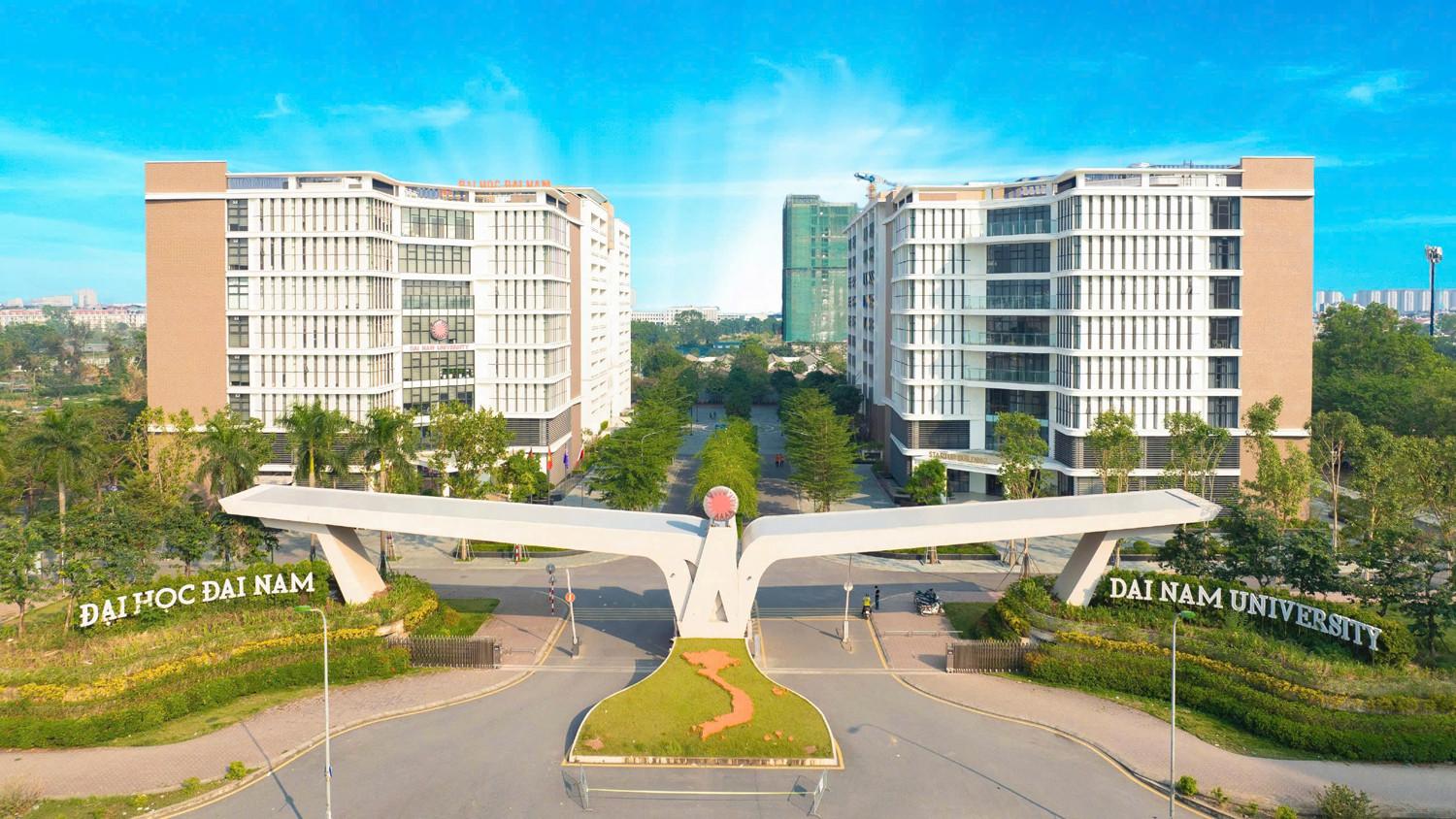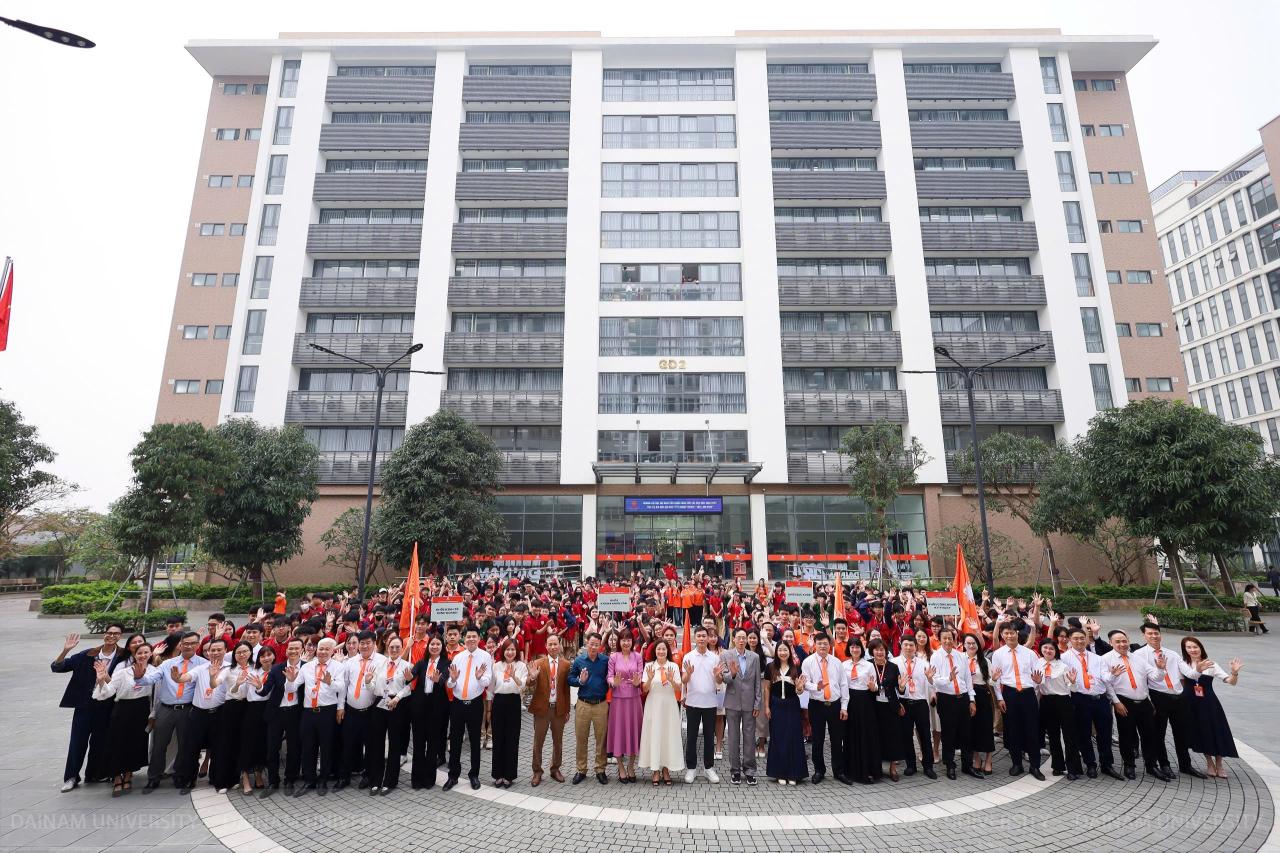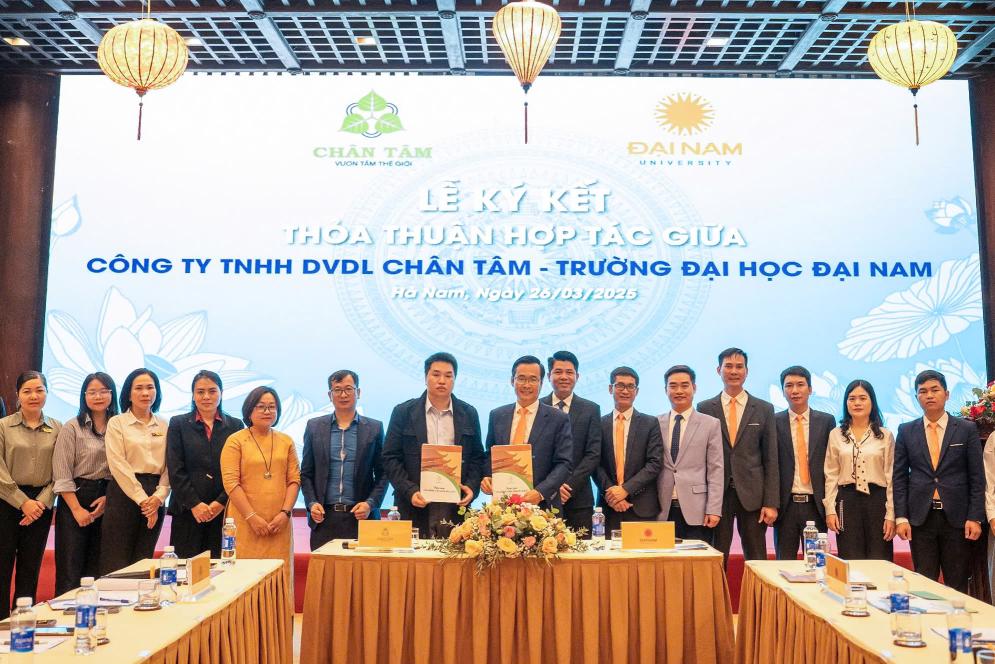Share about how to find foreigners to practice English
Posted date 18/09/2017
5.485 view

Hello everyone, there is a very familiar saying that “Practice makes perfect”. It is also a guideline in learning English. So how can we find an environment to practice English with native speakers regularly and without spending money? Speaking of which, many of you probably know what form it is, right?
Ms. Nguyen Thi Hoa - lecturer of Foreign Languages Faculty
Hello everyone, there is a very familiar saying that “Practice makes perfect”. It is also a guideline in learning English. So how can we find an environment to practice English with native speakers regularly and without spending money? Speaking of which, many of you probably know what form it is, right?
Taking advantage of the increasing trend of foreigners coming to Vietnam for tourism and their favorite places are the Old Quarter and around Hoan Kiem Lake, many young people have planned to “hunt for Westerners” at these locations. The idea is very good, but in reality, I see that many of the students’ plans to “hunt for Westerners” are ineffective and leave a bad impression on international visitors about Vietnamese people. Here, I would like to share some advice for you to refer to to help your plan to “hunt for Westerners” be successful and polite.
1. Outline a few specific, clear questions about a general topic (weather, food, travel, experiences in Vietnam, etc.). Some questions are as follows:
v Where are you from?
v How long have you been in Vietnam?
v What was your very first impression of Hanoi?
v Have you learned to cross the street yet?
v Would you like some help learning some words in Vietnamese?
v Would you like any recommendations for food to try?
You can bring a sheet of paper with the questions if you are afraid of forgetting.
2. The first thing before starting a conversation with a Westerner is to make it clear that you only want 5 to 10 minutes of their time. Keep your promise, but if they want to continue chatting with you, that's great.
3. You should not go in a large group, but only go in groups of 2 to 3 people or alone.
4. Choose a foreigner to practice communicating with. Each person will have different questions:
4.1 People who have just arrived in Vietnam for about 1 to 2 days
v Where are you from?
v How long have you been in Vietnam?
v What was your very first impression of Hanoi?
v Have you learned to cross the street yet?
v Would you like some help learning some words in Vietnamese?
v Would you like any recommendations for food to try?
4.2 People who come to Vietnam for more than 1 week
v Could you compare the two cities: HCM and Hanoi?
v Have you eaten anything very memorable?
v Have you seen anything out on the street like activities or rituals that you didn't understand?
v Before you came to Vietnam, had you been to any other countries in Asia?
v How do you feel Vietnam compares to other places?
4.3 People living in Vietnam
v What do you miss the most about home?
v Have you made any effort to learn Vietnamese?
v What did you find the most difficult about studying Vietnamese?
v Is there anything in Hanoi or in Vietnam in general that you would like to change?
Taking advantage of the increasing trend of foreigners coming to Vietnam for tourism and their favorite places are the Old Quarter and around Hoan Kiem Lake, many young people have planned to “hunt for Westerners” at these locations. The idea is very good, but in reality, I see that many of the students’ plans to “hunt for Westerners” are ineffective and leave a bad impression on international visitors about Vietnamese people. Here, I would like to share some advice for you to refer to to help your plan to “hunt for Westerners” be successful and polite.
1. Outline a few specific, clear questions about a general topic (weather, food, travel, experiences in Vietnam, etc.). Some questions are as follows:
v Where are you from?
v How long have you been in Vietnam?
v What was your very first impression of Hanoi?
v Have you learned to cross the street yet?
v Would you like some help learning some words in Vietnamese?
v Would you like any recommendations for food to try?
You can bring a sheet of paper with the questions if you are afraid of forgetting.
2. The first thing before starting a conversation with a Westerner is to make it clear that you only want 5 to 10 minutes of their time. Keep your promise, but if they want to continue chatting with you, that's great.
3. You should not go in a large group, but only go in groups of 2 to 3 people or alone.
4. Choose a foreigner to practice communicating with. Each person will have different questions:
4.1 People who have just arrived in Vietnam for about 1 to 2 days
v Where are you from?
v How long have you been in Vietnam?
v What was your very first impression of Hanoi?
v Have you learned to cross the street yet?
v Would you like some help learning some words in Vietnamese?
v Would you like any recommendations for food to try?
4.2 People who come to Vietnam for more than 1 week
v Could you compare the two cities: HCM and Hanoi?
v Have you eaten anything very memorable?
v Have you seen anything out on the street like activities or rituals that you didn't understand?
v Before you came to Vietnam, had you been to any other countries in Asia?
v How do you feel Vietnam compares to other places?
4.3 People living in Vietnam
v What do you miss the most about home?
v Have you made any effort to learn Vietnamese?
v What did you find the most difficult about studying Vietnamese?
v Is there anything in Hanoi or in Vietnam in general that you would like to change?
Latest article
View all Posts
Related articles
See all related Articles
Register for admission consultation 2025
Dai Nam University offers admissions to
36 academic programs
across a diverse range of disciplines, including Healthcare, Engineering and Technology, Economics and Business, and Social Sciences and Humanities.
Register now to secure
scholarships and tuition support worth up to 55 billion VND
scholarships and tuition support worth up to 55 billion VND

Register now to secure
scholarships and tuition support worth up to 55 billion VND
scholarships and tuition support worth up to 55 billion VND








